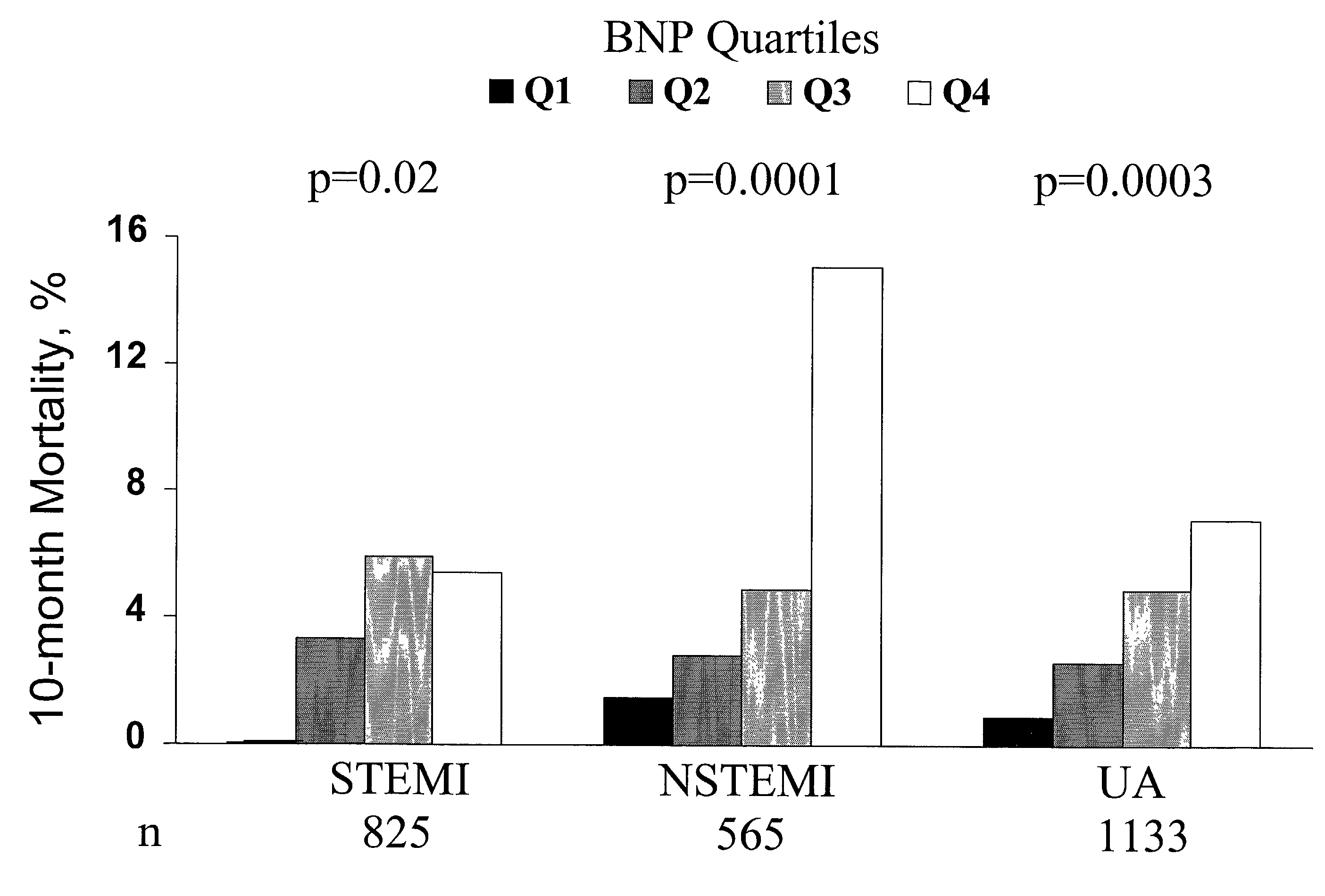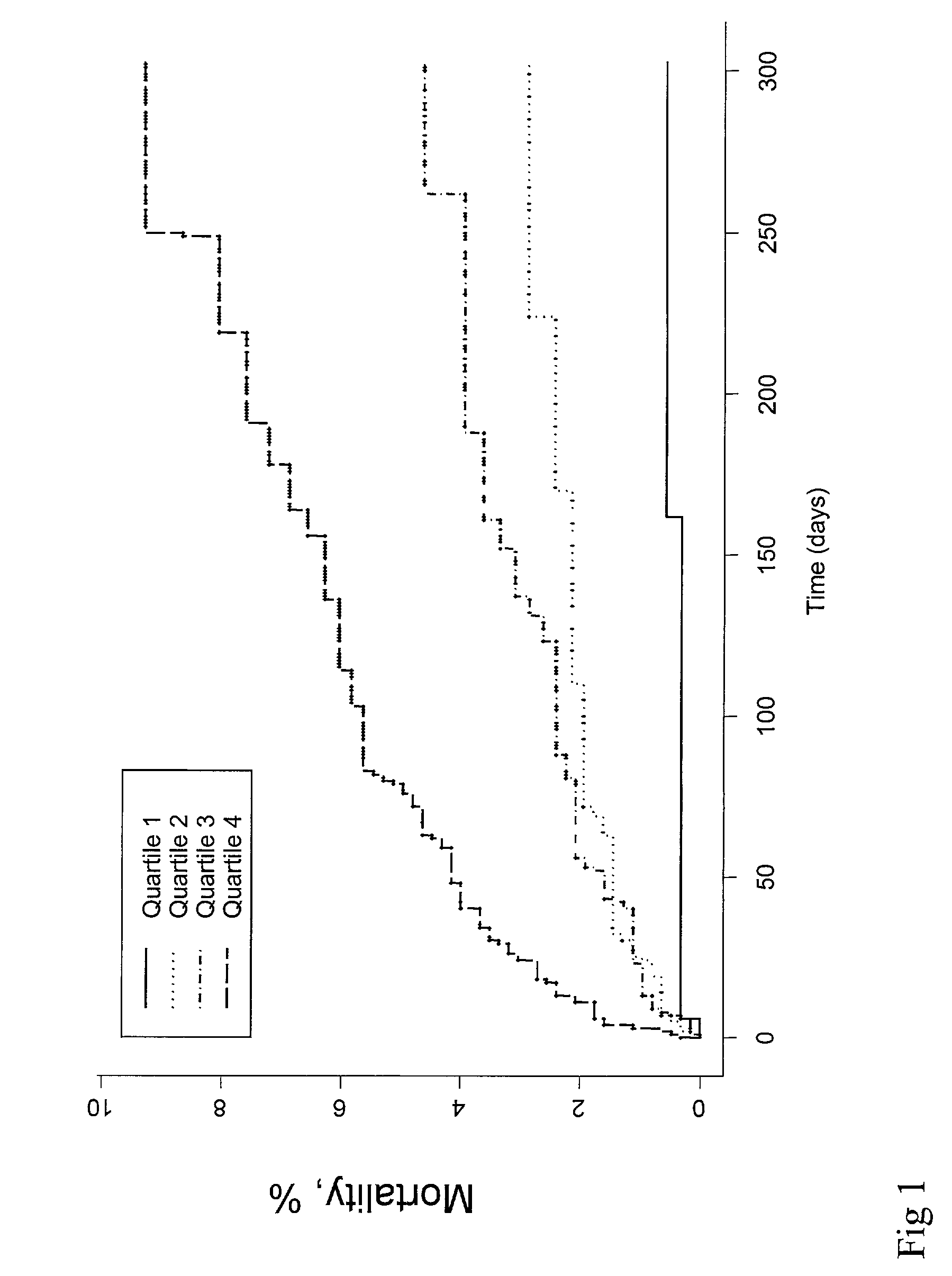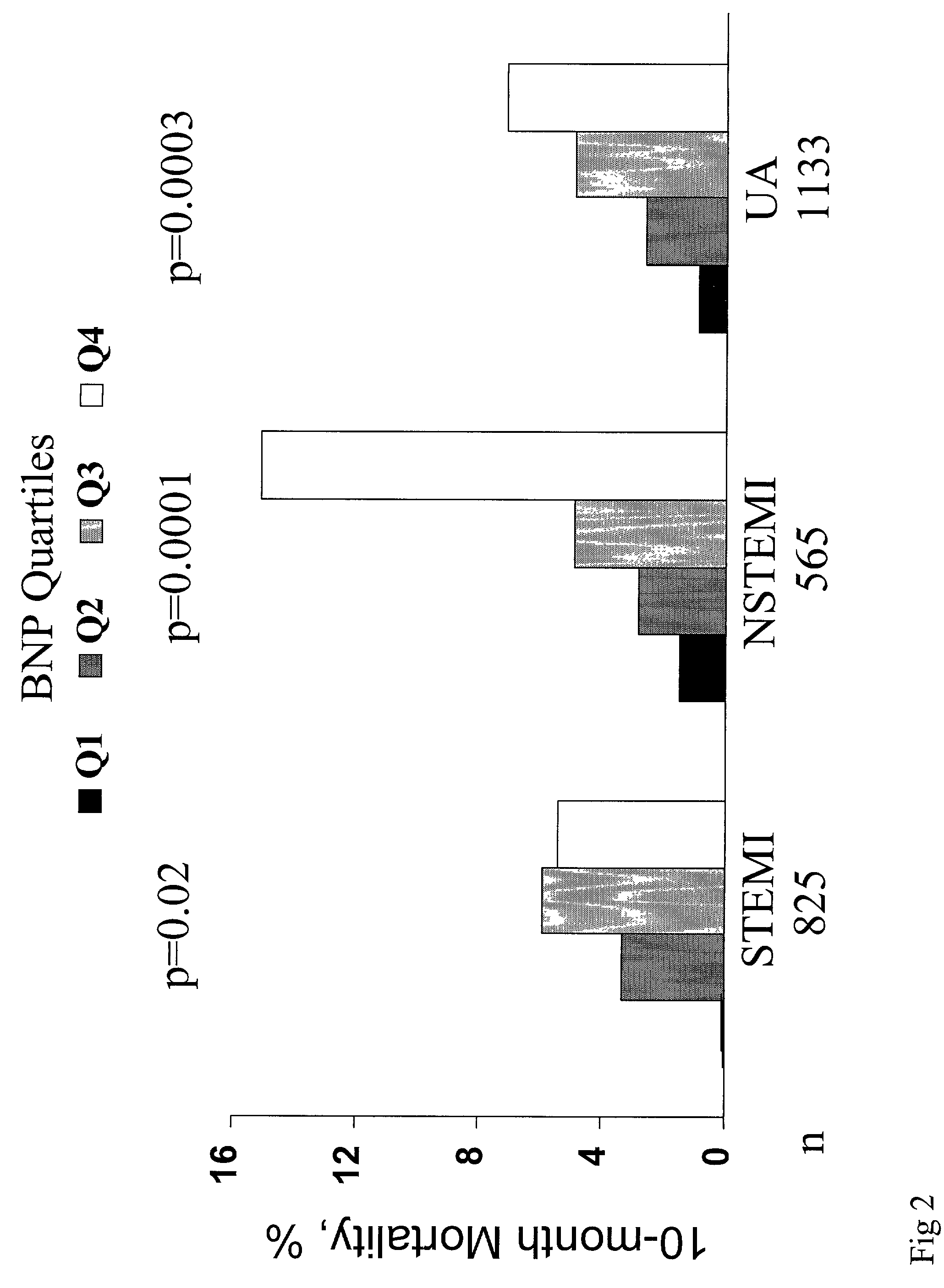Use of B-type natriuretic peptide as a prognostic indicator in acute coronary syndromes
- Summary
- Abstract
- Description
- Claims
- Application Information
AI Technical Summary
Benefits of technology
Problems solved by technology
Method used
Image
Examples
example 1
Validation of BNP as a Prognostic Indicator in ACS
Stud Population
[0054]The Oral Glycoprotein IIb / IIIa Inhibition with Orbofiban in Patients with Unstable Coronary Syndromes (OPUS-TIMI 16) Trial was a randomized multicenter trial comparing an oral glycoprotcin IIb / IIIa inhibitor, orbofiban, with placebo in 10,288 patients with acute coronary syndromes. Patients were included if they presented within 72 hours of the onset of ischemic discomfort and met one or more of the following criteria: dynamic ECG changes (ST deviation ≧0.5 mm, T-mm, T-wave inversion ≧3 mm in ≧3 leads, or left bundle branch block); positive cardiac markers; prior history of coronary artery disease; or age ≧65 with evidence of diabetes or vascular disease. See, e.g., Cannon et al., Circulation 102: 149–56 (2000).
[0055]The study population described in the Examples herein consisted of a subpopulation of 2525 patients from the OPUS-TIMI 16 study, of whom 825 were enrolled following an index ST elevation MI, 565 foll...
PUM
| Property | Measurement | Unit |
|---|---|---|
| Fraction | aaaaa | aaaaa |
| Fraction | aaaaa | aaaaa |
| Fraction | aaaaa | aaaaa |
Abstract
Description
Claims
Application Information
 Login to View More
Login to View More - R&D
- Intellectual Property
- Life Sciences
- Materials
- Tech Scout
- Unparalleled Data Quality
- Higher Quality Content
- 60% Fewer Hallucinations
Browse by: Latest US Patents, China's latest patents, Technical Efficacy Thesaurus, Application Domain, Technology Topic, Popular Technical Reports.
© 2025 PatSnap. All rights reserved.Legal|Privacy policy|Modern Slavery Act Transparency Statement|Sitemap|About US| Contact US: help@patsnap.com



